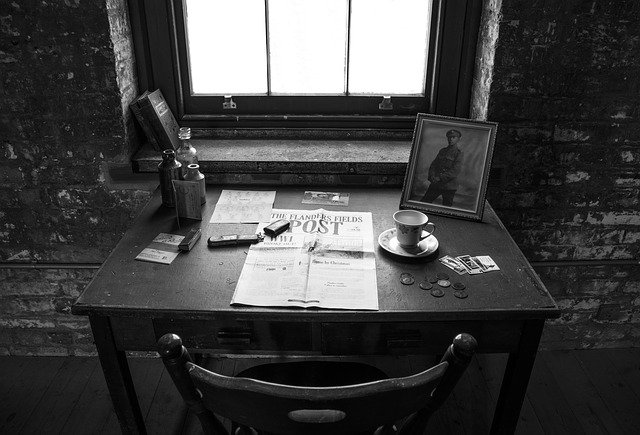The United States (USA) supported the Western Entente States before officially joining the First World War (1914-1918). The war finally took place in 1917 as a party to the Entente States.
The United States wants to play a central role in the new world order that will happen when the Allies win victory. US President Woodrow Wilson banned 14 principles he believed necessary for a lasting peace after the war.

Fourteen Points
- Post-war peace treaties should be made openly to the public. Diplomacy between states should be transparent and honest. Confidential agreements must be concluded.
- In the case of a force created in international agreements, absolute freedom must be exercised in the battle, as in the case of some parts of the sea or in the international seas outside the territorial waters, except for the complete closure. reason for an international activity.
- Economic barriers between all nations seeking peace and peaceful endeavors should be lifted as far as possible and equality of trade conditions should be ensured.
- Mutually adequate measures must be taken to ensure that national arms are reduced to the minimum in accordance with internal security.
- The colonies should be treated with a free, open-minded and totally neutral approach to all claims, and the principle of equitable fair weighing of the fair claims of states which are discussed in the interests of the people concerned shall be strictly observed. solving the problems of sovereignty.
- Foreign troops must withdraw from Russia, this country should be able to freely determine its own development and policies, be free to the international community and provide the necessary assistance.
- Foreign troops must withdraw from Belgium, this country must meet the sovereignty.
- French territories should meet their freedoms and Alsace-Lorraine should be returned to this country.
- Italy's borders must be redrawn according to national boundaries.
- Autonomous development opportunities should be given to the Austro-Hungarian people.
- Foreign troops must be withdrawn from Romania, Serbia and Montenegro, Serbia must go to sea and international security must be provided for the independence and territorial integrity of the Balkan countries.
- The Turkish people in today's Ottoman state must be given a secure sovereignty and the other nations of the Ottoman administration must provide full freedom for autonomous development with all kinds of insecure life security. In addition, the Dardanelles should be kept open to international transit transportation freely and internationally.
- Poland must be independent, have international security and must be opened to the sea.
- A union that includes all nations must be formed by agreements aimed at mutually securing the political freedom and territorial integrity of small states such as the big states.
In general, the Wilson Principles, which support free trade and liberal market economics, politically emphasize the extended sovereign rights of states. Wilson's 14 principles, diplomacy, brought a new perspective. Before the First World War, the public called for open public agreements to find old-fashioned secret diplomats they had done among themselves to speculate about who would take their own land. At the same time, Wilson thought he could prevent an international organ war based on collective security principles. In this context, it is planned to establish a League of Nations, in which peaceful states are members. This community must think that the sovereign rights of a member state are violated by another state as a threat to international peace, and all member states must respond accordingly. Theoretically, even an international organization, such as the League of Nations, will not give up the aggressive states' regional expansion policies. The League of Nations was one of the distinguishing features of the post-1919 period, because it was the first formal step in establishing an international institution to resolve disputes with permanent structures and a written constitution. In the 1930s, despite the failure of Japan, Italy and Germany to prevent aggressive politics, the League of Nations formed a model for the United Nations in 1945.